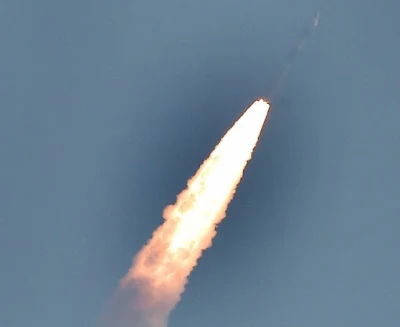It was a historic event for India as the ISRO (Indian Space Research Organization) successfully launched its 100th satellite Cartosat-2 Series (weighing 710 kg) along with 30 other co-passenger satellites.
 These satellites were launched in a Polar Satellite Launch Vehicle PSLV C40 which lifted off from its spaceport Satish Dhawan Space Centre (SDSC) in Sriharikota, Andhra Pradesh. The launch of the 100th satellite by the ISRO marks its glorious achievement as well as it showcases the bright future of India’s space programmes. The uniqueness of the mission was that satellites were launched in two different orbits. This huge success will definitely bring benefits to the country.
These satellites were launched in a Polar Satellite Launch Vehicle PSLV C40 which lifted off from its spaceport Satish Dhawan Space Centre (SDSC) in Sriharikota, Andhra Pradesh. The launch of the 100th satellite by the ISRO marks its glorious achievement as well as it showcases the bright future of India’s space programmes. The uniqueness of the mission was that satellites were launched in two different orbits. This huge success will definitely bring benefits to the country.

- The PSLV-C40 successfully placed the Cartosat-2 series satellite in a sun-synchronous orbit
- Out of the 31 satellites, three are Indian satellites and 28 belong to 6 other countries (Canada, Finland, France, South Korea, UK and USA.)
- The Indian satellites include 710 kg Cartosat-2 series for Earth observation as the primary satellite of the mission, along with co-passenger payloads, including 100 kg microsatellite and a 10 kg Nanosatellite.
- The Cartosat-2 series would orbit the Earth for five years.
- The successful orbiting of the satellites by the Polar Satellite Launch Vehicle PSLV C40 comes four months after the ISRO’s mission to launch backup navigation spacecraft IRNSS-1H on board PSLV-39 ended in failure.

